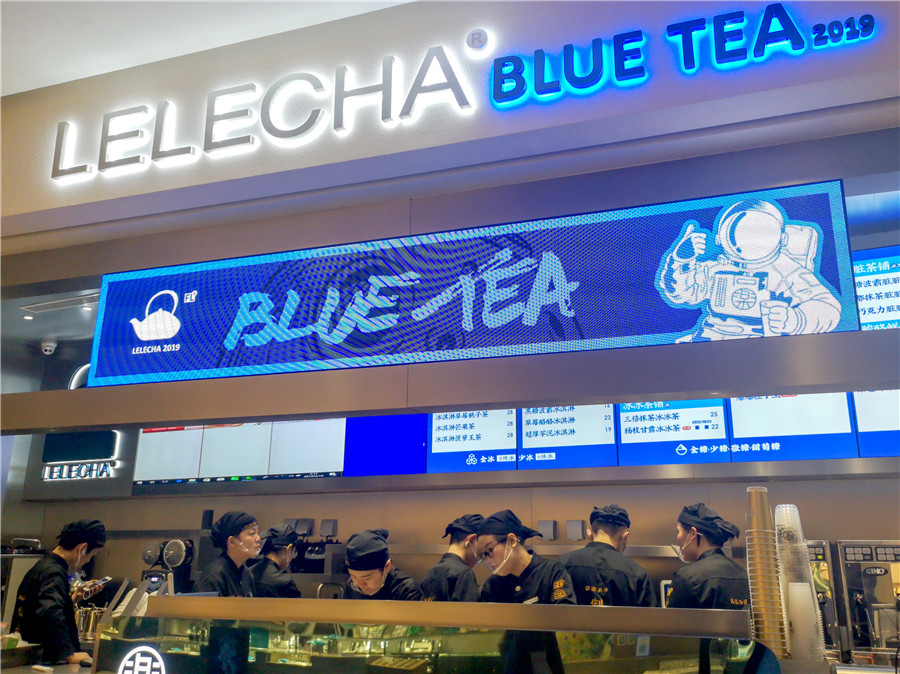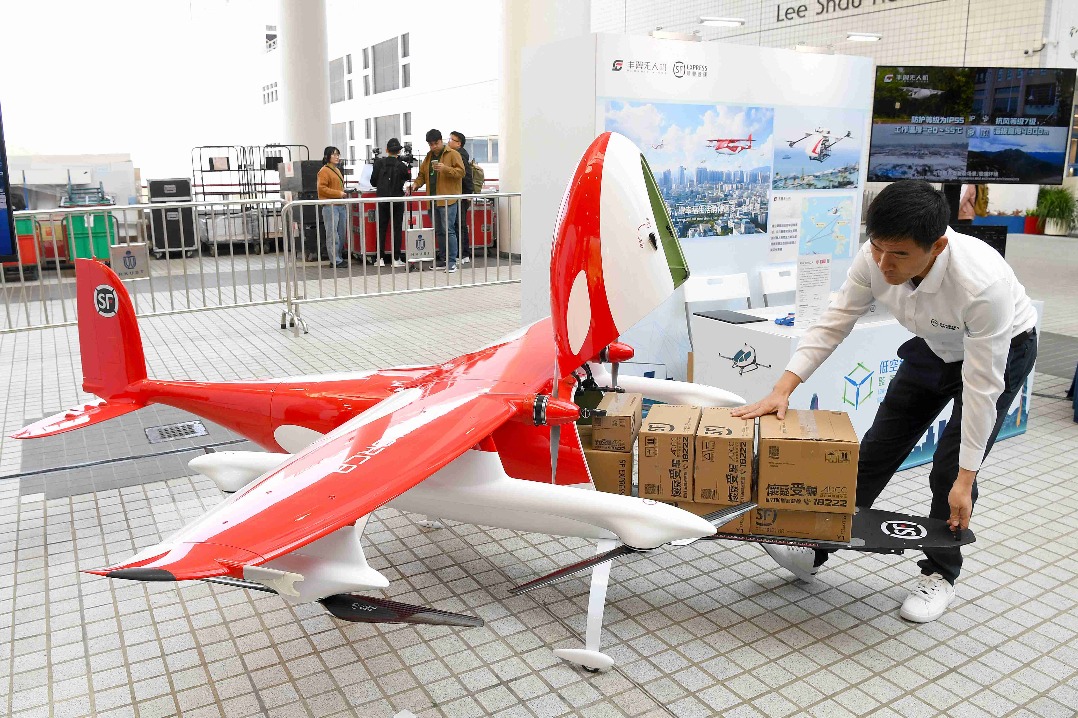New beverage market moves into top gear as demand surges


Chen Jiaxin, a post-90s game developer in Shenzhen, Guangdong province, takes time out to have a beverage every day. On most occasions, it would be a takeout bottle of pearl milk tea from yidiandian, a milk tea shop, but on other days it would be a cup of iced lemon tea in the afternoon with his friends at a nearby cafe.
Chen, who spends roughly 150 yuan ($21.8) on beverages every week, sees this as a daily routine and an occasion to mingle with his friends and catch up on the latest developments in the gaming sector and also topics of other interest.
Demand from Chen and a host of millennials is providing impetus to China's new beverage market, which attracted huge investments last year, with new growth seams opening up amid intense competition, said a new report.
The report, issued by Beijing-headquartered think tank Equal Ocean, showed that in 2018, China's new beverage market, with yidiandian and Lelecha being representatives, stood at 279.2 billion yuan, up 179 percent year-on-year.
New beverages are defined as upgraded versions of traditional beverages. Innovations lie in raw materials, producing processes, operations and business modes. New beverage stores started appearing in China in 2000, with most of them selling pearl milk tea, juice and coffee. The stores are usually well-decorated, offering a nice environment for social interaction.
According to Equal Ocean, from December 2015 to February 2019, there were eight financing deals in the sector of over 100 million yuan and six deals of over 10 million yuan.
"The market is still expanding because of the growing consumption group, the public's rising disposable income, consumption upgrade, and the rising purchasing power of female consumers," said the report.
Data from online consumption service provider Meituan Dianping showed that currently, those aged under 25 years old are the largest consumers of new beverages, accounting for 47 percent, followed by those aged between 25 and 30 with 29 percent.
Tang Naiyuan, a consumption analyst at Equal Ocean, said that "the post-90s and post-00s generations are the largest consumers of new beverages. With the introduction of the second-child policy, there is enough room for further growth in the market".
"With the consumption upgrade, consumers' demand for a more sophisticated lifestyle has been rising and this in turn has led to an explosive growth of new beverage stores. From 2017 to 2018, the number of new beverage stores in China surged by 300 percent," she said.
The rising purchasing power of female consumers is another reason for the market growth. Data from Alibaba's AliResearch showed that from 2015 to 2017, money spent by female consumers on Taobao surged by 64 percent, demonstrating stronger spending power.
According to Meituan Dianping, women accounted for 74.8 percent of the tea consumers and 68.7 percent of coffee consumers at these outlets. They mostly buy drinks during tea time, and new beverage consumption has become their way of enjoying life.
In terms of the reasons for new beverage consumption, Meituan Dianping found that the main ones were "I like the product", and "It makes me relaxed", rather than blindly following the trend. "Having new beverages has become a lifestyle for Chinese consumers," Tang said.
Industry experts noted that China's new beverage market has entered a mature period, as products are becoming widespread, and enterprises' sales growth and profit ratio have dropped. During this period, brands can find new growth points by broadening product categories, functions and sales channels.
To expand sales channels, the Taiwan-based yidiandian, chose to open a store in a village in Guangzhou, Guangdong province.
"In contrast to shopping malls, the village in the city has dense population and huge consumption potential. In addition, the store rent is low and consumption frequency is high. The establishment of stores here satisfied the beverage demand of Guangzhou's floating population and put the village on the city's new beverage market," said a company statement.
To enhance consumer experience, it constantly diversifies its product portfolio. For example, with consumers paying increasing attention to healthy lifestyles, yidiandian has added fresh fruits and soda water, to its pearl milk tea.
"New beverage brands should refine their products, while making innovations in products and stores, in order to surprise consumers constantly. At the management level, they should consider ways to cut operating costs and boost output efficiency," Tang said.




































